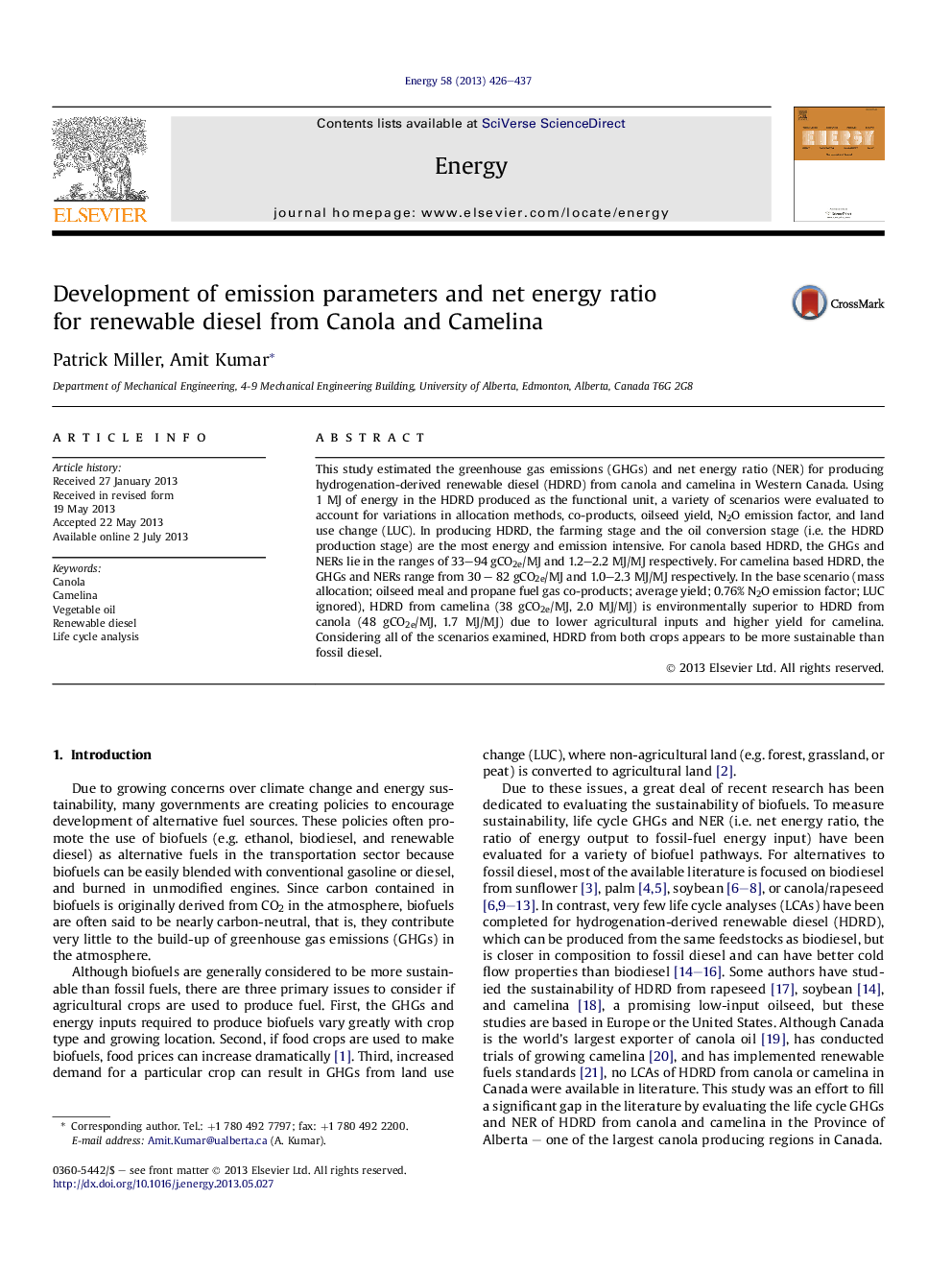| کد مقاله | کد نشریه | سال انتشار | مقاله انگلیسی | نسخه تمام متن |
|---|---|---|---|---|
| 1732904 | 1521488 | 2013 | 12 صفحه PDF | دانلود رایگان |

• This study estimates the net energy ratio and greenhouse gas emissions in production and utilization of renewable diesel.
• The life cycle approach has been used in this study using canola and camelina as feedtocks.
• Several scenarios were developed to study the impacts of variations in unit operations on net energy ratio and emissions.
• HDRD from both crops appears to be more sustainable than fossil diesel.
This study estimated the greenhouse gas emissions (GHGs) and net energy ratio (NER) for producing hydrogenation-derived renewable diesel (HDRD) from canola and camelina in Western Canada. Using 1 MJ of energy in the HDRD produced as the functional unit, a variety of scenarios were evaluated to account for variations in allocation methods, co-products, oilseed yield, N2O emission factor, and land use change (LUC). In producing HDRD, the farming stage and the oil conversion stage (i.e. the HDRD production stage) are the most energy and emission intensive. For canola based HDRD, the GHGs and NERs lie in the ranges of 33–94 gCO2e/MJ and 1.2–2.2 MJ/MJ respectively. For camelina based HDRD, the GHGs and NERs range from 30 – 82 gCO2e/MJ and 1.0–2.3 MJ/MJ respectively. In the base scenario (mass allocation; oilseed meal and propane fuel gas co-products; average yield; 0.76% N2O emission factor; LUC ignored), HDRD from camelina (38 gCO2e/MJ, 2.0 MJ/MJ) is environmentally superior to HDRD from canola (48 gCO2e/MJ, 1.7 MJ/MJ) due to lower agricultural inputs and higher yield for camelina. Considering all of the scenarios examined, HDRD from both crops appears to be more sustainable than fossil diesel.
Journal: Energy - Volume 58, 1 September 2013, Pages 426–437